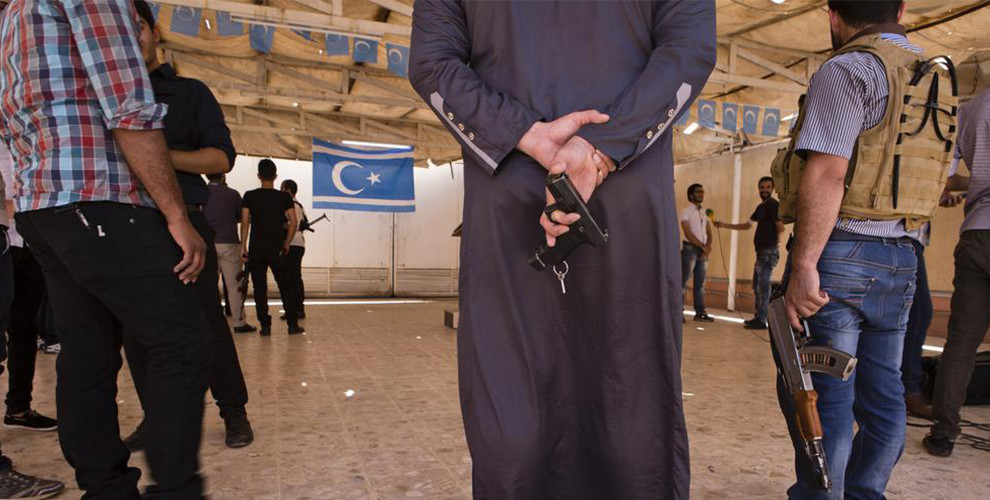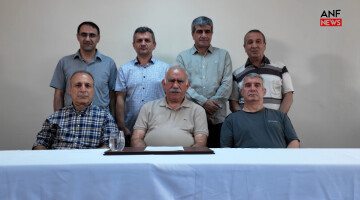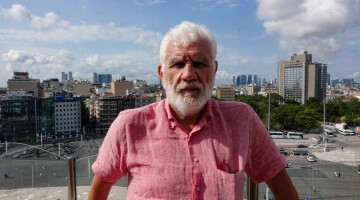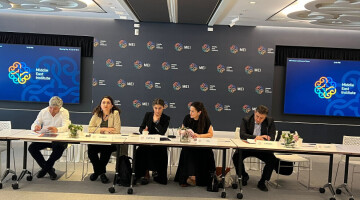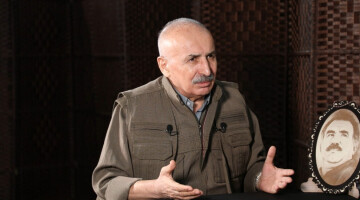According to media reports, the Turkish AKP government has formed in the Iraqi Kurdistan city of Kirkuk an armed group of 500 to 600 members belonging to the Iraqi Turkmen Front (ITC). It is said that there are documents proving that the armed group was trained in the northern Kurdistan town of Silopi and receives between 400 and 700 dollars per capita.
Shiwan Dawudî, a former parliamentarian of the Patriotic Union of Kurdistan (PUK), and Xalid Şwani, a member of the PUK board, have issued statements on the issue and forwarded the documents to the Iraqi government.
In the week in which they made this statement, successive explosion occurred in Kirkuk. Last week, the Turkish IYI party led a demonstration under the slogan " Kirkuk is Turkish and will remain Turkish". That's no coincidence. The reality is that Turkey, or better Erdoğan, and the AKP have created their own armed groups in both Syria and Iraq. The reason why such declarations are made right now results from the developments taking place. At the NATO summit, the situation of Kirkuk was also dealt with. The meeting leaked information that NATO troops were to be stationed in Kirkuk and that the city would be placed under the protection of NATO and the international coalition. There are indications that Erdoğan is trying to bring about chaos in Kirkuk, either to change this decision of NATO and the coalition, or to participate in the operation itself.
The organisers of the militia and their financiers
At the end of 2011, even before the so-called "Arab Spring" began, the Turkish state started to build up armed groups, especially in Syria and Iraq.
At the beginning of 2012, Tarik Hashimi, Deputy President of Iraq and leader of the Islamic Party, fled to South Kurdistan, from where he was handed over to Turkey, to shirk responsibility for a massacre of Shiites in Iraq. He also visited Qatar. After his leave from Iraq, ISIS began to show itself to be a powerful organization. Iraqi courts sentenced Hashimi to death in his absence. Some newspapers said they had receipts showing that Hashimi had paid $ 50 million to ISIS. In 2013, ISIS took the stage in Syria. It was stronger both militarily and organizationally. In 2014, ISIS occupied the cities of Anbar, Tal Afar and Mosul. The then governor of Mosul, Esil Nuceyfi, left Mosul to the ISIS and did not flee to his homeland, but took shelter in Turkey, namely by Erdoğan. Even though the Iraqi Federal Court issued an arrest warrant for Nuceyfi, he was not extradited to Iraq. He stayed with Erdoğan together with Hashimi. The plan to give Shengal to ISIS after Mosul was forged in Amman. In a sense, the plans that Hashimi had designed and implemented through ISIS became reality. The role of implementation and coordination of the plan was assigned by Hashimi to Erdoğan and the AKP. If Hashimi's plans had not suited Erdoğan and the AKP, they would not have risked fending off all Shia and keeping Hashimi near them.
While the ISIS occupied large areas in Iraq, the Turkish state sent military forces to Bashiqa near Mosul. This deployment led to a serious crisis between Iraq and Turkey. The Turkish government stuck to its claim to carry out training there only. However, it comes out clearly only now who they actually trained there. While Iraq organized the Hashd al-Shaabi militia to fight the ISIS, Turkey, with their forces in Bashiqa, trained an organization called Hashdi-Vatani. However, Hashdi-Vatani is a kind of official form of ISIS and al-Qaida. After a while, there was no mention of these Hashdi-Vatani militias who were trained by Turkey. There was neither a declaration of dissolution nor a declaration of its continued existence.
The armed group is one of these groups now appearing in Kirkuk. But not only that, it has to be known that in Iraq and South Kurdistan there are many armed groups that have organized themselves under the name Hashdi-Vatani. At the moment they are being exposed in Kirkuk. Over time, all these groups and their background will be revealed.
After their emergence in Syria, ISIS later took control over many cities in Iraq. After the occupation of Mosul and Shengal they advanced up to Hewlêr and Kirkuk. But the international forces did not allow ISIS to enter Hewlêr and Kirkuk. So the ISIS could advance only until Mosul and Shengal. Of course, this is not only related to the international forces. The ISIS, which was somehow commanded by Hashimi and Erdoğan, had only been allowed to capture Shengal, Mosul, and part of Kirkuk.
The IS nevertheless wanted to advance to Kirkuk. This was a development beyond the plans forged between the international forces, Erdoğan and Hashimi, and was a sticking point in which Erdoğan's and Hashimi's plans separated from those of the international forces. That is why ISIS has been constantly attacking Kirkuk. After the defeat of ISIS in Raqqa, Erdoğan mobilized his militias, which in turn consisted of remnants of ISIS. The massacre and occupation attacks in Afrin developed in the wake of this process. As the attacks on Efrin began, the ISIS groups deployed in Kirkuk and the disputed territories were mobilized and hundreds of attacks were carried out. Dozens of people were massacred. The armed gang group under the Iraqi Turkmen Front, which was formed by Turkey and Erdogan, and has been exposed by PUK officials recently, reveals what elements have been organized within the ISIS in Kirkuk. The fact that these groups were completely organized by Hashimi and Erdoğan groups and are named differently depending on the time, has become clear.
What will happen now?
Now the question arises as to what will happen after this Turkey-led ITC armed group has been exposed by PUK officials. The PUK officials have stated that they have submitted the relevant documents to the Iraqi government. The Iraqi government has so far shown no official response. However, this situation is not limited to Iraq. International law prohibits one country from forming and paying for armed groups in another country. This fulfills the requirement of interference in the internal affairs of a country and can bring with it the accusation of importing terror into another country.
It is difficult to predict in which direction the whole thing will develop. It looks like the PUK is not ready to give up on the subject. Unavoidably, when Kirkuk is in question, the PDK comes into play as well. This can be observed, inter alia, in the media. Not only PDK and PUK, but also the international powers are interested in Kirkuk. That's why the US, England, France, Iran and many other countries will be putting the issue on their agenda. Everyone has their interests and plans with Kirkuk oil.

